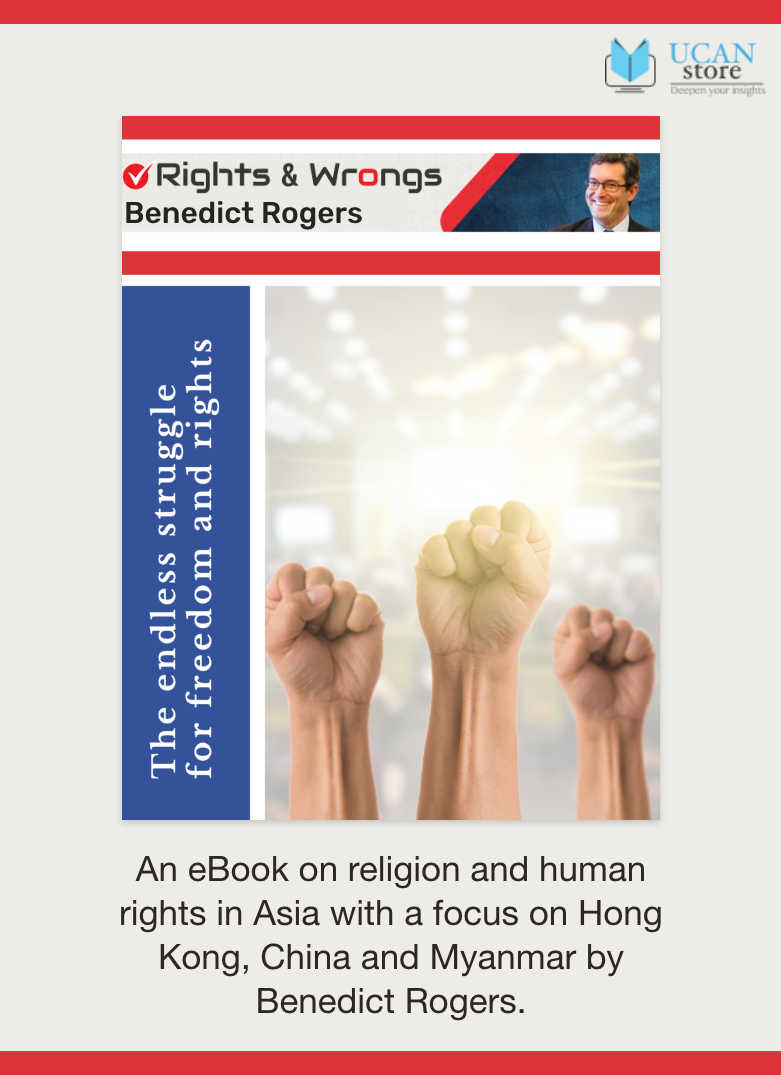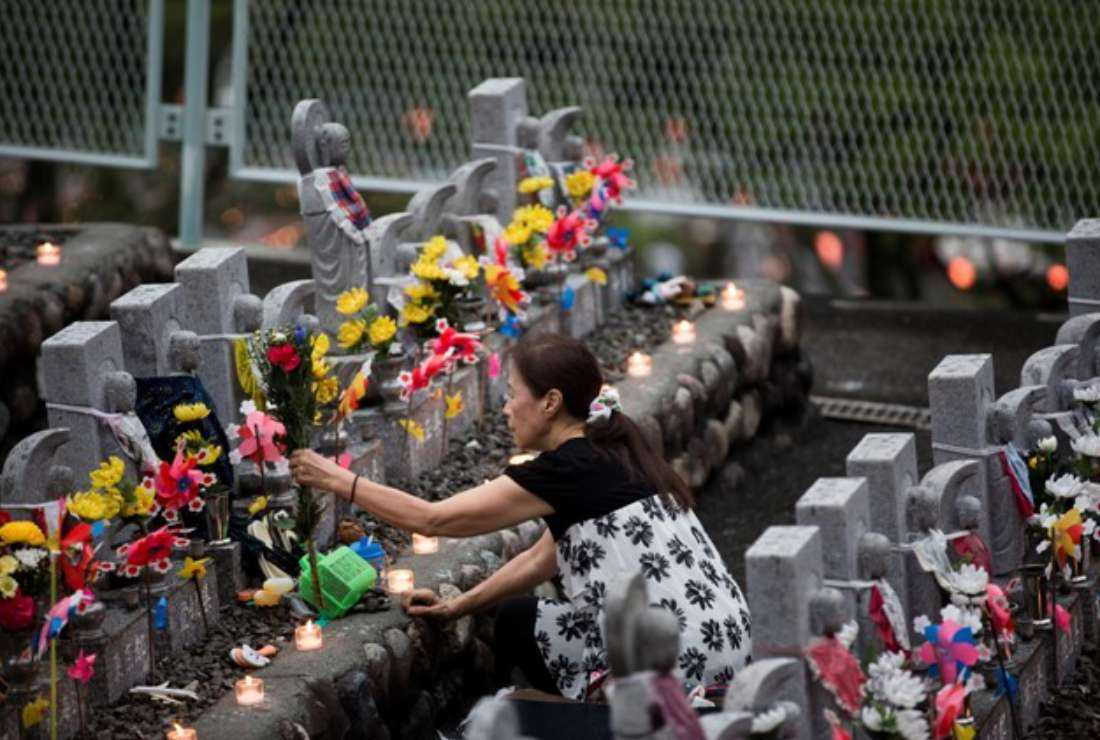
There has been a growing movement among Japanese women to make this pill more readily available

A woman places flowers in front of a 'jizo' statue of her aborted child in Jizoji Buddhist Temple in Oganomachi, Saitama prefecture, for the souls of unborn children and those who died at a young age, during the Obon prayers period, in August 2018. (Photo: AFP)
There have been over 140,000 unborn babies in Japan due to abortion, seven times the number of suicides in the country. Despite this colossal figure, NHK, the publicly funded Japanese broadcaster, has been making efforts to create a consensus over an easier way to terminate a pregnancy, through the abortion pill.
NHK producers must have felt that the 140,000 surgical abortions reported by the health ministry in 2020 are not enough, and the country could do more despite the steep crunch in population. But they are not alone.
In recent years, there has been a growing movement among Japanese women to make the abortion pill more readily available.
The abortion pill, also known as medication abortion or medical abortion, involves using a combination of two medications to terminate a pregnancy in its early stages.
The availability of this particular pill in Japan has been limited due to strict regulations. Abortion laws in Japan have historically been restrictive, with the procedure being heavily regulated and only permitted under certain circumstances, such as if the pregnancy poses a risk to the woman's health or in cases of rape.
However, a growing number of Japanese women's rights activists, healthcare professionals, and organizations have been advocating for greater access to the abortion pill. They argue that increasing access to the medication would empower women to have greater control over their lives especially while choosing whether or not to prolong their career.
"The speaker's intentions were not driven by genuine concern for the improvement of women's circumstances"
One of the key organizations at the forefront of this movement is Women's Action Network Japan (WAN Japan). They have been working tirelessly to raise awareness about medication abortion and its benefits, while also advocating for changes in legislation to make the abortion pill more widely available.
These efforts have gained momentum, and as anticipated, the NHK is openly campaigning for it, which amounts to embracing a precise political agenda.
During a recent radio program, Miho Takao, a female obstetrician was invited to deliver a presentation that primarily focused on sponsoring the abortion pill. Her discourse leaned towards promoting the aforementioned pill, as evident from the notable effort and enthusiasm she exerted in highlighting its favorable aspects.
She never once mentioned the embryo but always referred to it as a "mono" (thing).
One of her key arguments revolved around emphasizing that, like men who have the freedom to pursue their careers unhindered by legal obligations to cease working during pregnancy, women should also possess such autonomy.
Consequently, it appeared that the speaker's intentions were not driven by genuine concern for the improvement of women's circumstances, but rather reflected a predisposition towards engaging in an ideological confrontation with men.
In fact, if the genuine aim of these activists was to secure freedom in career choices, one would expect them to advocate for legal reforms that would prohibit companies from discriminating against women who have temporarily paused their careers due to childbirth. The conspicuous absence of any mention of such measures serves as compelling evidence of their lack of sincerity or genuine intent.
Also, amid discussions on the abortion pill, only its “benefits” are mentioned along with the need for increased access, the potential drawbacks and concerns associated with its use are never acknowledged.
"The abortion pill should raise ethical considerations related to the determination of when life begins"
In truth, the abortion pill, like any medication, carries potential health risks and side effects — heavy bleeding, severe cramping, incomplete abortion, infection, and allergic reactions.
Unlike surgical abortion, which is typically performed in a medical setting with professional supervision, medication abortion allows individuals to self-administer the pills at home. The lack of direct medical supervision should raise concerns about potential complications that may go unnoticed.
Furthermore, the emotional and psychological effects of medication abortion can be significant. People who use it are likely to experience feelings of guilt or regret after terminating a pregnancy.
The limited access to counseling or post-abortion support services in Japan can potentially leave individuals struggling, possibly leading to long-term psychological distress.
But above all, the abortion pill should raise ethical considerations related to the determination of when life begins. This complex ethical debate surrounding the moral status of the fetus in the 30-minute-long discussion NHK had with the activist obstetrician was never once raised.
The Japanese public should know that when they pay the 15,000 yen a year to the public broadcaster they are not financing a mere entertainment/information company but they are allocating funds to advance a specific political cause.
Call it anti-natalist if you will, its consequence is clear: straight depopulation.
*The views expressed in this article are those of the author and do not necessarily reflect the official editorial position of UCA News.
Help us keep UCA News independent
The Church in Asia needs objective and independent journalism to speak the truth about the Church and the state.
With a network of professionally qualified journalists and editors across Asia, UCA News is just about meeting that need. But professionalism does not come cheap. We depend on you, our readers, to help maintain our independence and seek that truth.
A small donation of US$2 a month would make a big difference in our quest to achieve our goal.

Share your comments